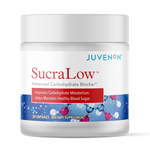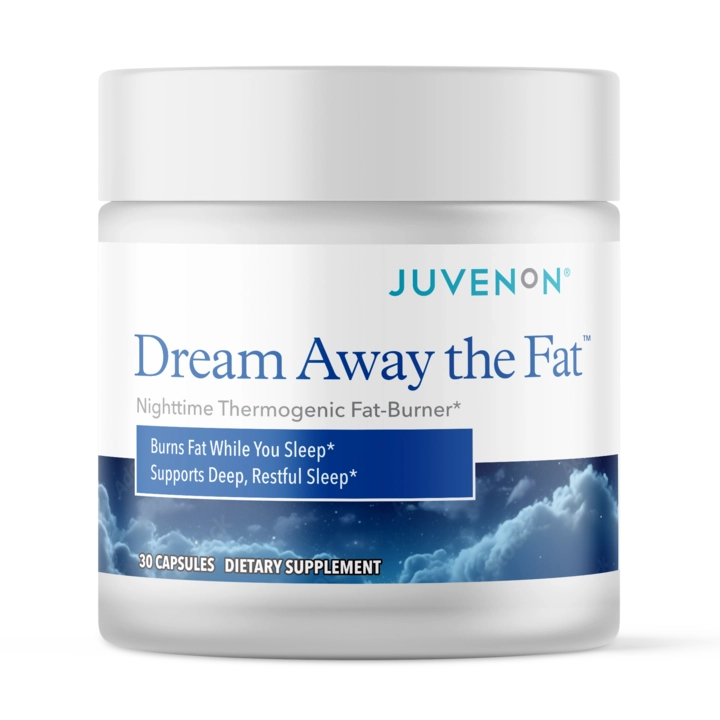How Much NAD+ Should I Take? A Comprehensive Guide
Feeling sluggish and tired? Struggling to bounce back from illness? You might be experiencing the effects of declining NAD+ levels.

NAD+ has gained significant attention in the wellness and anti-aging community. That’s because as we age, our bodies produce less NAD+, which is vital when it comes to the cells in your body and their countless processes. This decline can contribute to a range of health issues, from fatigue and poor metabolism to accelerated aging. But fear not, as NAD+ supplementation has emerged as a promising solution to counteract these effects.
But how much NAD+ is the right amount? In this comprehensive guide, we'll delve into NAD+ supplementation, exploring the benefits, optimal dosage, and potential side effects. By the end, you'll have the knowledge to make informed decisions about incorporating NAD+ into your wellness routine.
Benefits of NAD+ Supplementation
Nicotinamide Adenine Dinucleotide (NAD+) is a coenzyme essential for numerous cellular processes, including energy production and DNA repair[1]. Like many other bodily functions, NAD+ levels naturally decline with age, which can lead to a host of potential health issues. NAD+ supplementation offers a natural approach to counteract age-related declines and promote overall well-being.
Enhanced cellular energy production
NAD+ plays a pivotal role in cellular processes, particularly those involved in energy production and DNA repair[1]. NAD+ is a crucial player in mitochondrial function, the powerhouses of our cells. By supporting mitochondrial health, NAD+ supplementation can boost energy levels and alleviate fatigue. Research suggests that adequate NAD+ levels help activate sirtuins, proteins responsible for maintaining cellular health and mitigating oxidative stress[2].
Impact on energy, metabolism, and weight
Low NAD+ levels are linked to decreased mitochondrial function, which can lead to fatigue. Studies have shown that NAD+ precursors like NMN (Nicotinamide Mononucleotide) and NR (Nicotinamide Riboside) can enhance mitochondrial activity, boosting energy production and metabolism[3]. Adequate NAD+ levels can optimize metabolic processes, aiding in weight management and overall metabolic efficiency.
Possible anti-aging effects
NAD+ is really gaining steam for its potential anti-aging benefits, especially among the Hollywood elite. By supporting DNA repair and reducing cellular damage, NAD+ may delay age-related decline in multiple systems, including cardiovascular health and brain function. Studies show that NAD+ supplementation or treatment with precursors may help restore mitochondrial function in aging-related neurodegenerative disorders[4].
Factors Affecting NAD+ Dosage
The optimal NAD+ dosage can vary widely depending on several factors[5]. As we age, our body's natural NAD+ production decreases, often necessitating higher dosages to maintain just the right levels.
Individuals recovering from illness or managing chronic conditions may also benefit from increased NAD+ intake to support cellular repair and energy metabolism. Lifestyle factors like diet, exercise, and stress can significantly impact NAD+ levels. A sedentary lifestyle or a diet high in processed foods may deplete NAD+ stores more rapidly, while regular exercise and a balanced diet can help maintain healthy levels.
Certain medical conditions, including diabetes, cardiovascular diseases, and neurodegenerative disorders, are also associated with lower NAD+ levels[6]. In such cases, consulting with a healthcare professional is crucial to determine the appropriate dosage.
How Much NAD+ Should I Take Daily?
While specific dosage recommendations can vary, a common starting point for many people is between 250-500 mg of an NAD+ precursor like NMN (Nicotinamide Mononucleotide) or NR (Nicotinamide Riboside) daily[7]. According to a 2022 study published inFrontiers in Nutrition, healthy volunteers safely tolerated a daily dose of 250 mg of the NAD precursor NMN over a 12-week period[8].
Here are some recommended dosage ranges for different age groups:
- Under 40: 250–300 mg daily
- 40–60: 300–500 mg daily
- 60+: Up to 1000 mg daily, depending on individual needs and health status
To minimize potential side effects and allow your body to adjust, it's recommended to start with a lower dose and gradually increase it over time. This gradual approach can help your body acclimate to the supplement and reduce the risk of adverse reactions. It's recommended to consult with a healthcare professional to determine the optimal dosage for your individual needs.
What Type of NAD Supplement Should I Take?
NAD+ supplements come in various forms, each with its own advantages and considerations. Oral supplements and intravenous forms appear to be how most people are supplementing with NAD+:
- Pills and Powders are a safe and convenient way to incorporate NAD+ into daily routines. However, they may have lower bioavailability compared to intravenous forms, meaning less of the supplement is absorbed into the bloodstream. The recommended dosage for pills and powders is typically between 250 and 500 mg daily[9].
- Injections and IVs offer a more rapid increase in NAD+ levels[10]. However, they require administration by a healthcare professional and the dosage can vary depending on individual needs and medical advice. Plus injections and IVs can be extremely costly.
Optimal Timing for NAD+ Supplementation
The best time to take NAD+ supplements often depends on a person’s routine and unique goals, so timing can vary based on an individual’s needs. For most people, taking NAD+ in the morning aligns well with the body's natural energy cycle. This is because NAD+ plays a key role in energy production and cellular metabolism, processes that are most active during the day. This timing can help optimize energy levels, mental clarity, and overall productivity throughout the day.
However, if the primary goal is recovery or repair, such as after intense exercise or during periods of stress, it’s beneficial to supplement later in the day to support nighttime cellular repair. Consistency is key, so find a schedule that works best for you and stick to it for optimal results.
While daily dosing is a common approach, some individuals may benefit from splitting their dose into two or more smaller doses throughout the day. This can help maintain steady NAD+ levels and potentially enhance its effects. While most people can tolerate taking NAD+ long-term, it’s important to consider incorporating periodic breaks to prevent tolerance and ensure sustained effectiveness. Cycling on and off NAD+ supplements involves taking breaks for a certain period, allowing the body to rest and potentially boost its natural NAD+ production. This helps maintain the supplement's efficacy over the long term.
Potential Side Effects and Precautions
While NAD+ supplementation is generally well-tolerated, it's important to be aware of potential side effects and precautions. Common side effects, which are typically mild, include:
- Nausea
- Headaches
- Digestive discomfort
These side effects are usually temporary and subside once the body adjusts to the supplement. NAD+ may interact with certain medications, such as blood thinners or anti-inflammatory drugs.
People who are pregnant, nursing, or have any underlying health conditions should consult with a healthcare professional before starting NAD+ supplementation.
Monitoring and Adjusting Your NAD+ Intake
To ensure optimal benefits and minimize potential side effects, it's important to monitor your NAD+ intake and adjust your dosage as needed.
Signs That Your NAD+ Dosage May Be Too Low or Too High
- Too Low: Persistent fatigue, lack of noticeable benefits, or difficulty recovering from illness.
- Too High: Nausea, dizziness, gastrointestinal issues, or other adverse reactions.
Methods for Tracking NAD+ Levels
While direct measurement of NAD+ levels in the body can be complex, certain lab tests, such as blood or urine analysis, can provide insights into overall cellular health and energy metabolism. These tests can help assess if your NAD+ levels are within a healthy range.
When and How to Adjust Your Dosage
If you're not experiencing the desired benefits or are experiencing side effects, it's important to consult with a healthcare professional to discuss potential adjustments to your dosage. Generally, it's recommended to increase your dosage gradually to minimize the risk of adverse reactions.
Ready to Optimize Your NAD+ Levels?
Now that you've explored the world of NAD+ and its potential role in promoting cellular health, energy, and overall well-being, you might be wondering where to begin. Here at Juvenon, we believe in empowering individuals to make informed decisions about their health.
Here are some key considerations when choosing an NAD+ supplement:
- Quality Ingredients: Look for supplements that utilize high-quality, clinically studied and tested ingredients.
- Bioavailability: Opt for forms with optimal bioavailability to ensure your body can absorb and utilize the supplement effectively.
- Dosage Transparency: Choose a brand that clearly states the dosage per serving, allowing for personalized adjustments.
- Safety and Reputation: Select a brand with a strong reputation for safety and quality control.
Peak NAD+ by Juvenon offers a potential solution for those seeking a convenient and science-backed approach to NAD+ supplementation. It features a scientifically studied blend of ingredients designed to help the body naturally increase NAD+ production.
If you’re ready to start your NAD+ supplementation journey, consider Juvenon’s Peak NAD+. Designed to support cellular health and energy production, they offer a scientifically backed solution for healthy aging.
FAQs About NAD+ Dosage
How much NAD+ should I take for specific health concerns?
Consult a healthcare provider to tailor NAD+ supplementation to your health needs.
Can I take too much NAD+?
Taking excessive amounts may lead to side effects like nausea or dizziness. Stick to recommended dosages and consult a professional if unsure.
How long does it take to see results from NAD+ supplementation?
Most people notice benefits within a few weeks of consistent supplementation.
Are there natural ways to increase NAD+ levels without supplements?
Yes, regular exercise, a healthy diet, and intermittent fasting can help boost NAD+ levels naturally.
FAQs About NAD+ Supplementation
What are the benefits of taking NAD?
NAD+ supports energy production, DNA repair, and healthy aging. Studies show its benefits for metabolism, cardiovascular health, and neuroprotection.
What is the downside of NAD?
Downsides include mild side effects like nausea, and in rare cases, interactions with medications.
Can you take NAD every day?
Yes, daily dosing is typical, but consult a healthcare provider for personalized advice.
Does NAD+ actually work?
Studies confirm that NAD+ precursors like NMN and NR effectively boost NAD+ levels, with associated health benefits
References
1. https://pmc.ncbi.nlm.nih.gov/articles/PMC7973386/
2. https://pmc.ncbi.nlm.nih.gov/articles/PMC4112140/#:~:text=PARP%20inhibitors%20are%20in%20clinical,the%20original%20claims%2016%E2%80%9323.
3. https://pmc.ncbi.nlm.nih.gov/articles/PMC9738479/#:~:text=It%20has%20been%20reported%20that,in%20aged%20mice%20%5B18%5D.
4. https://pubmed.ncbi.nlm.nih.gov/33609766/
5. https://pmc.ncbi.nlm.nih.gov/articles/PMC10692436/
6. https://pmc.ncbi.nlm.nih.gov/articles/PMC7963035/#:~:text=reactive%20oxygen%20species.-,NAD+%2Ddependent%20mechanisms%20in%20ageing,see%20also%20the%20next%20section).
7. https://www.mdpi.com/2076-3921/11/9/1637
8. https://pmc.ncbi.nlm.nih.gov/articles/PMC9036060/
9. https://pmc.ncbi.nlm.nih.gov/articles/PMC9036060/
10. https://www.azivmedics.com/side-effects-of-nad-therapy#:~:text=NAD%20IV%20treatment%20puts%20NAD,may%20help%20with%20NAD%20shortage.






















